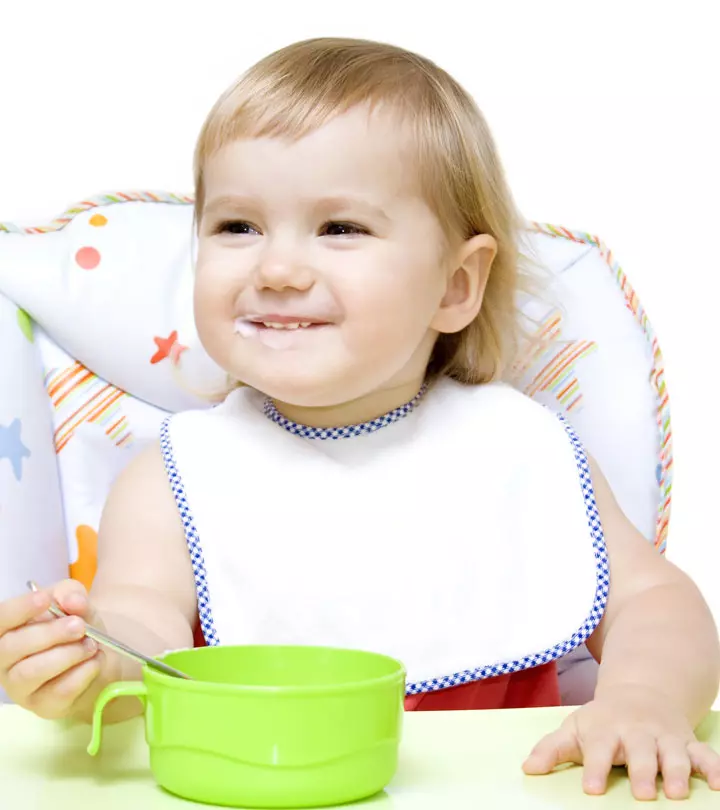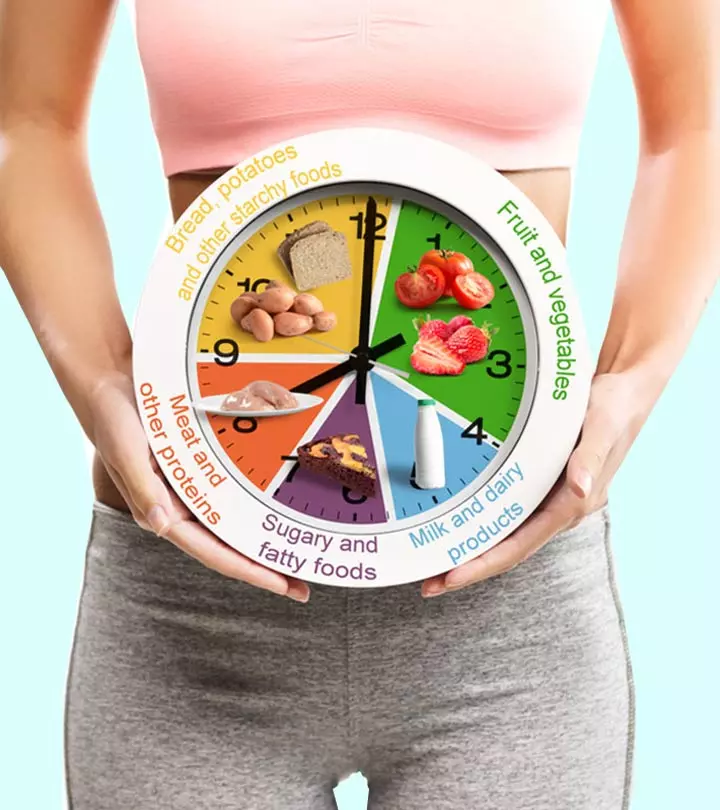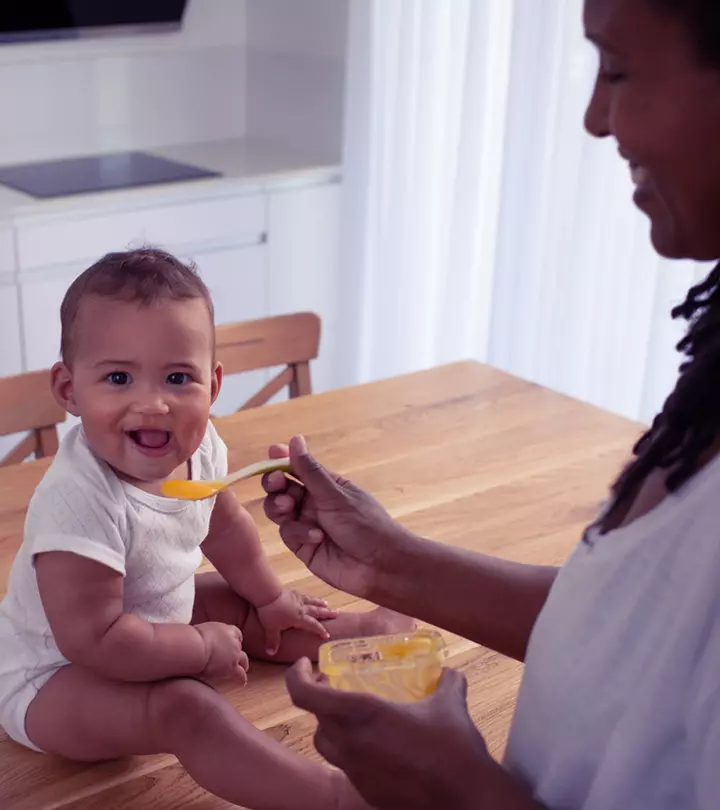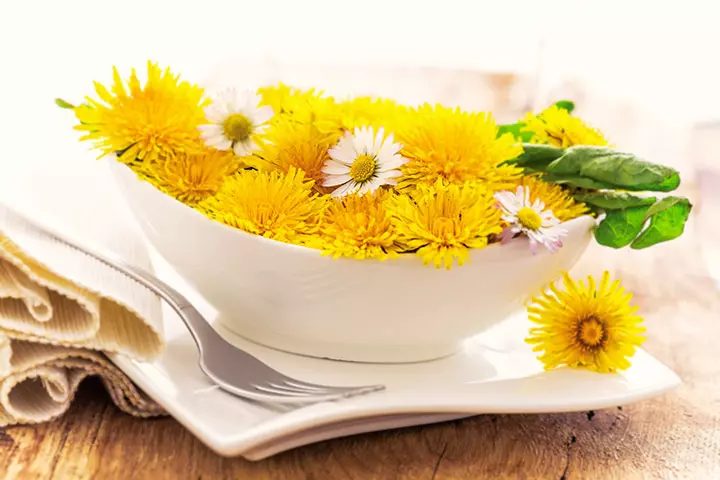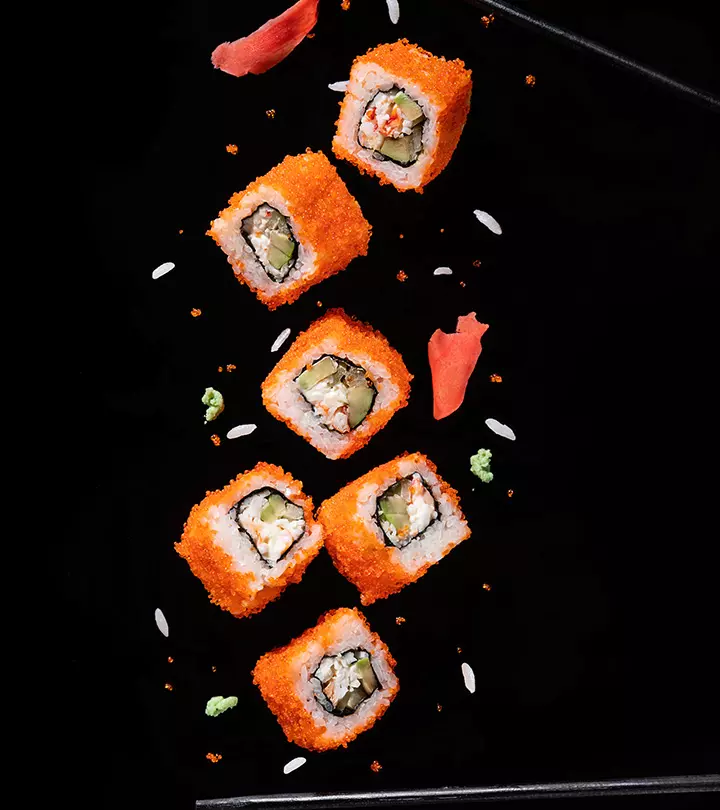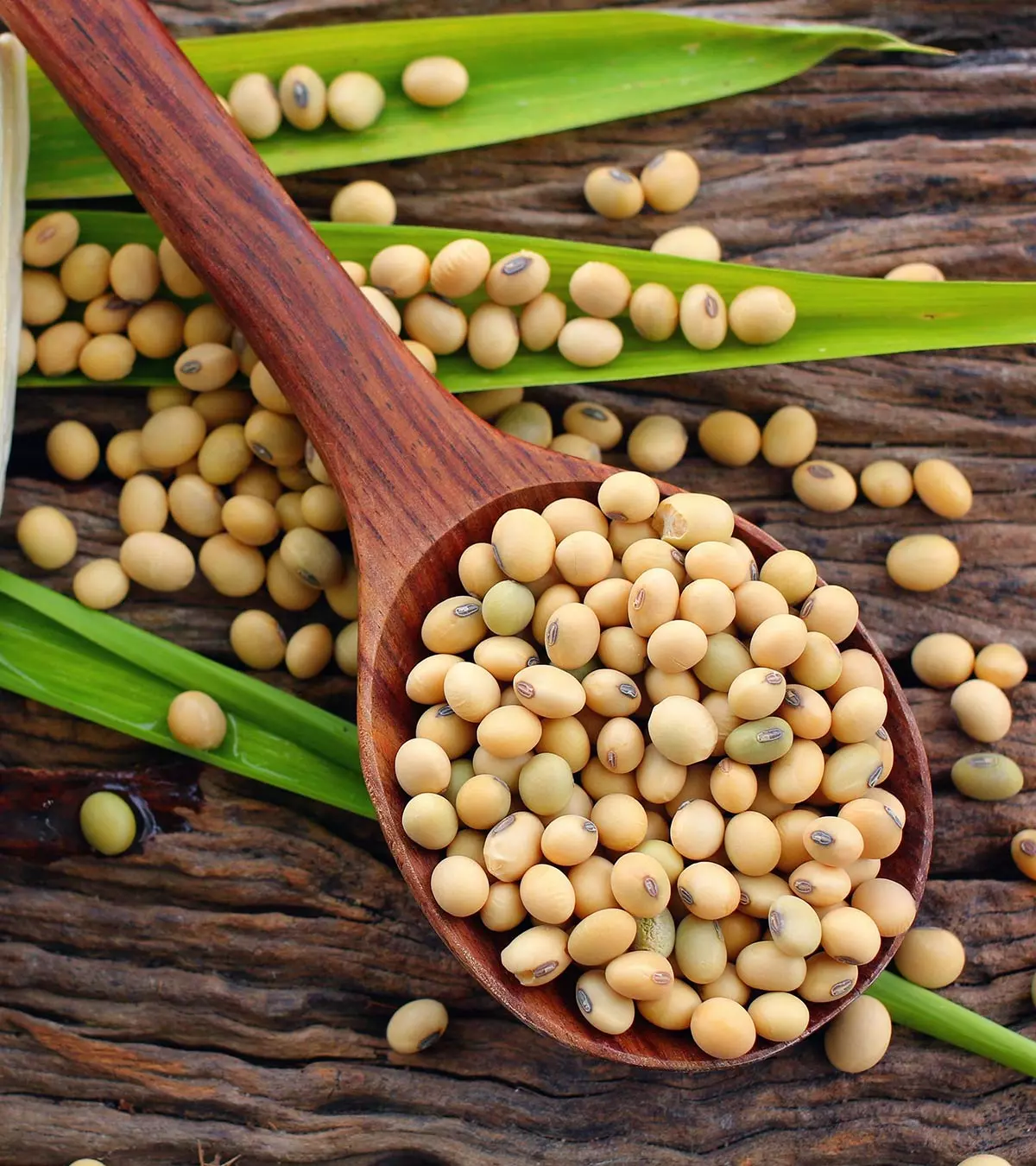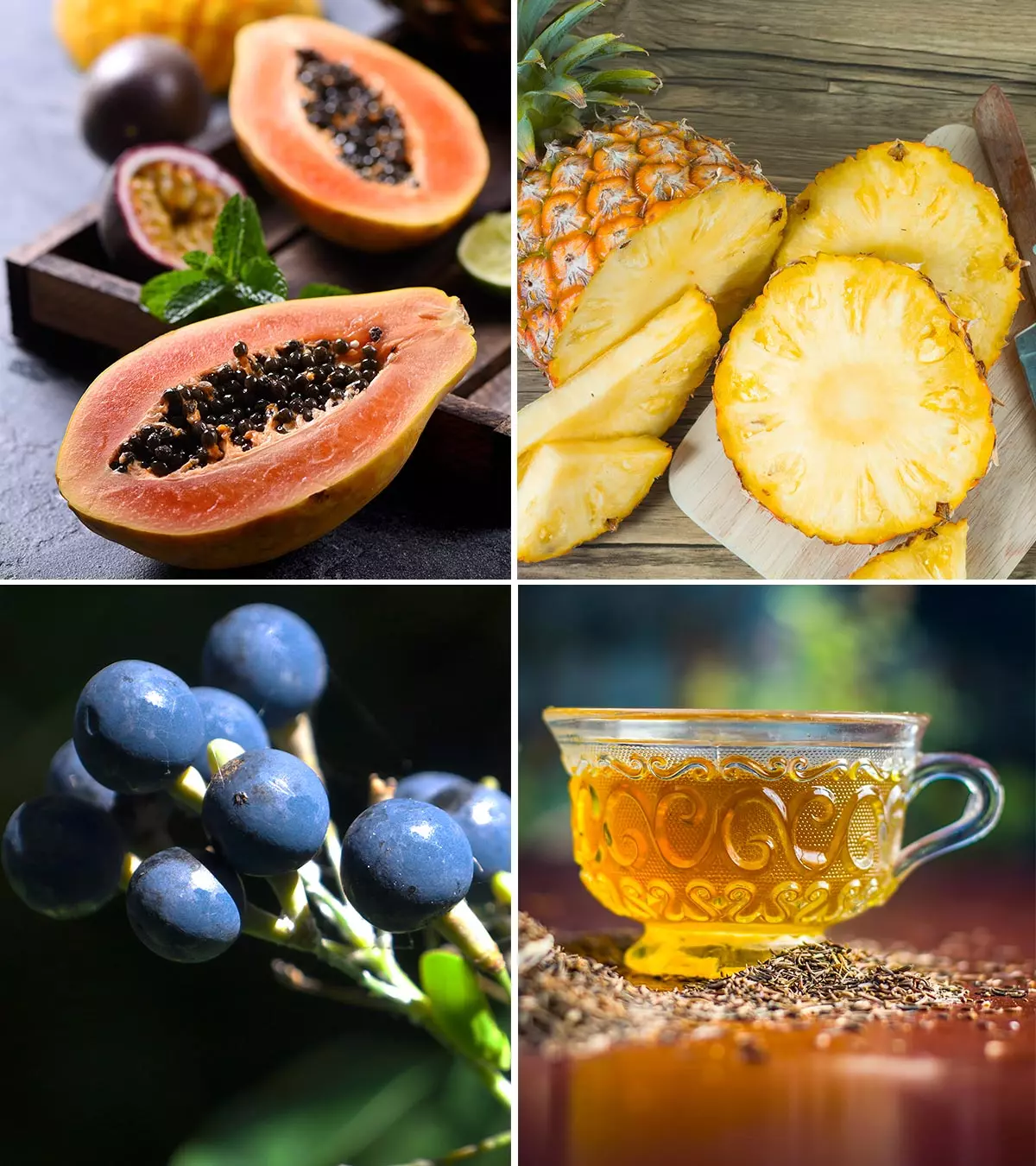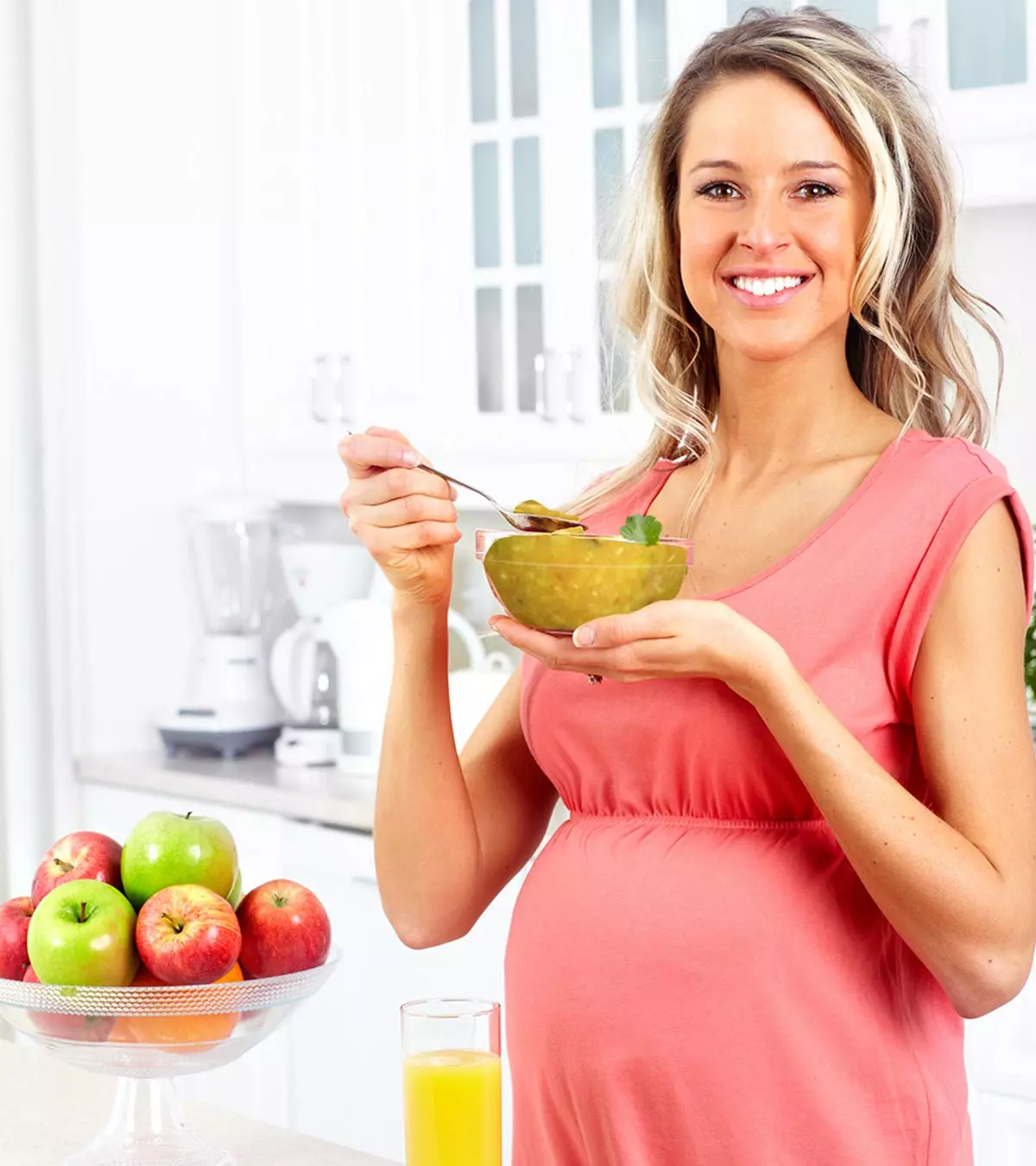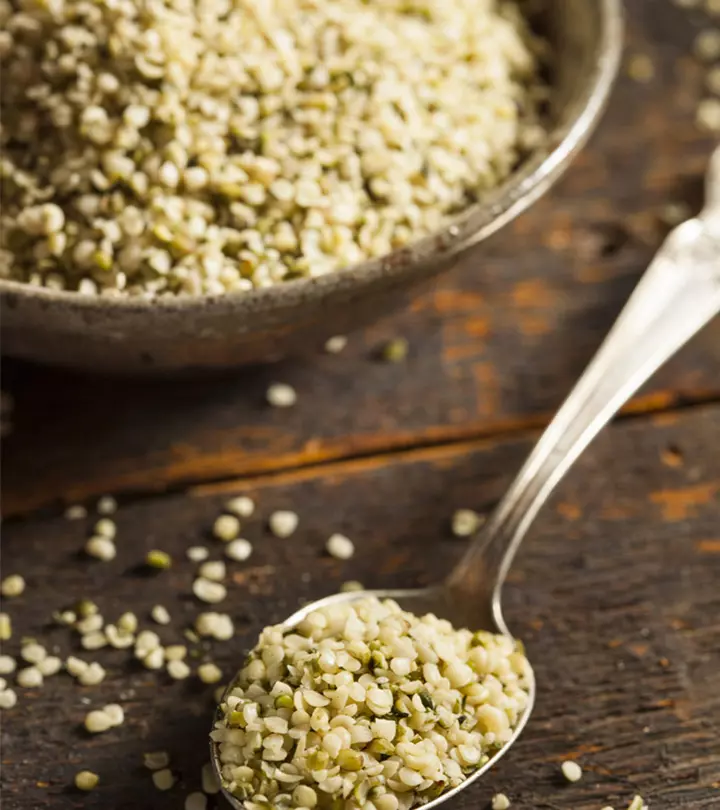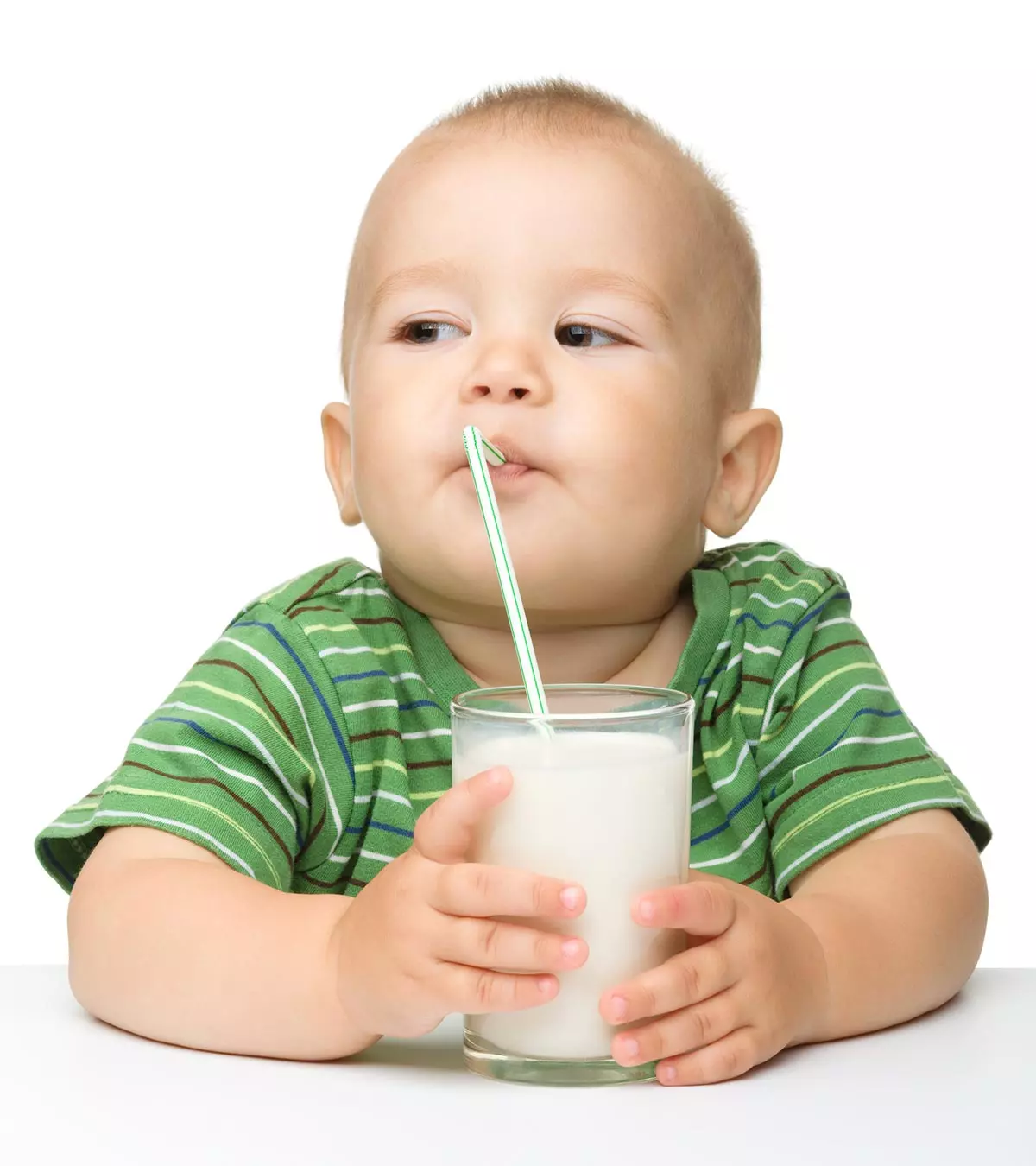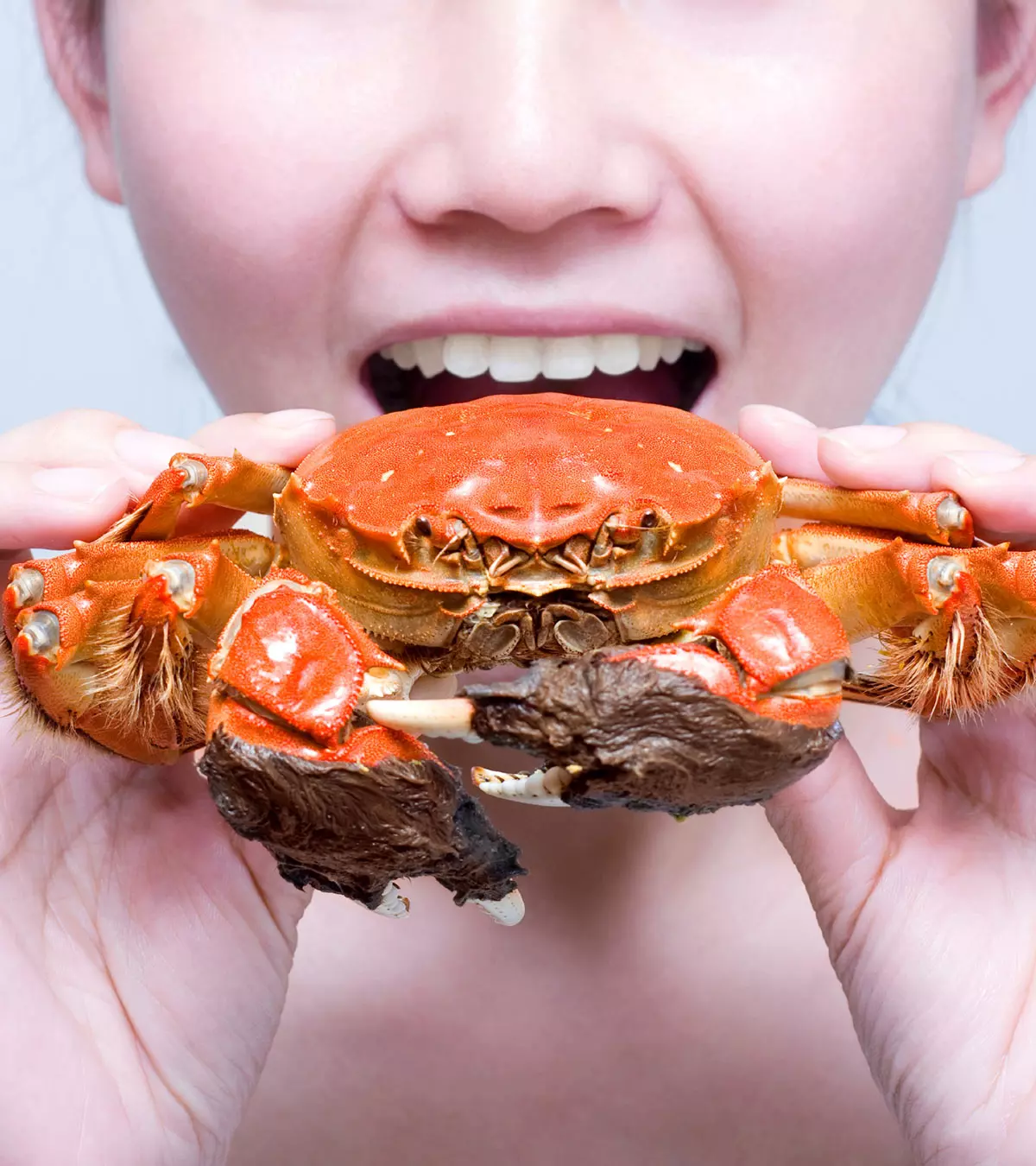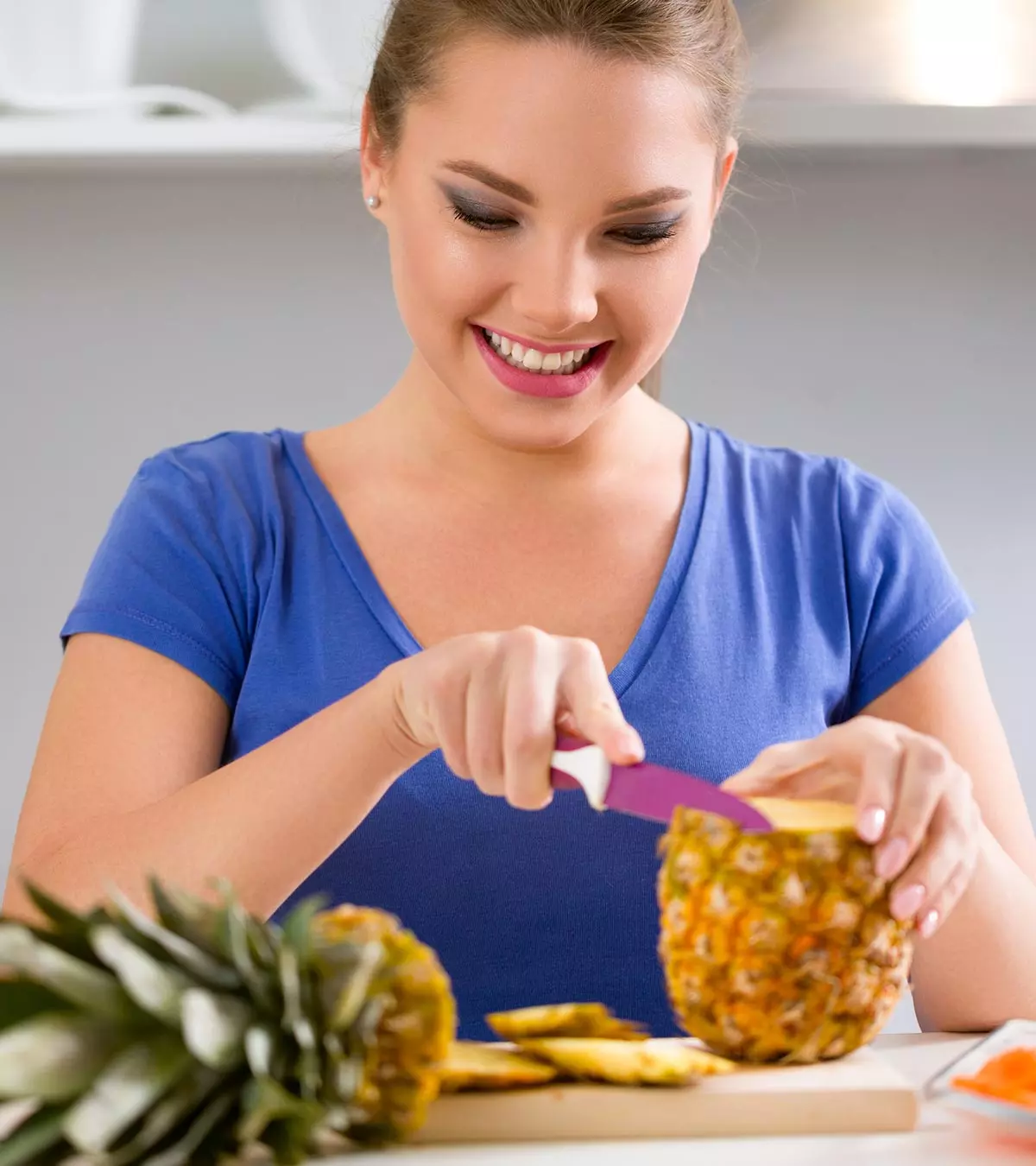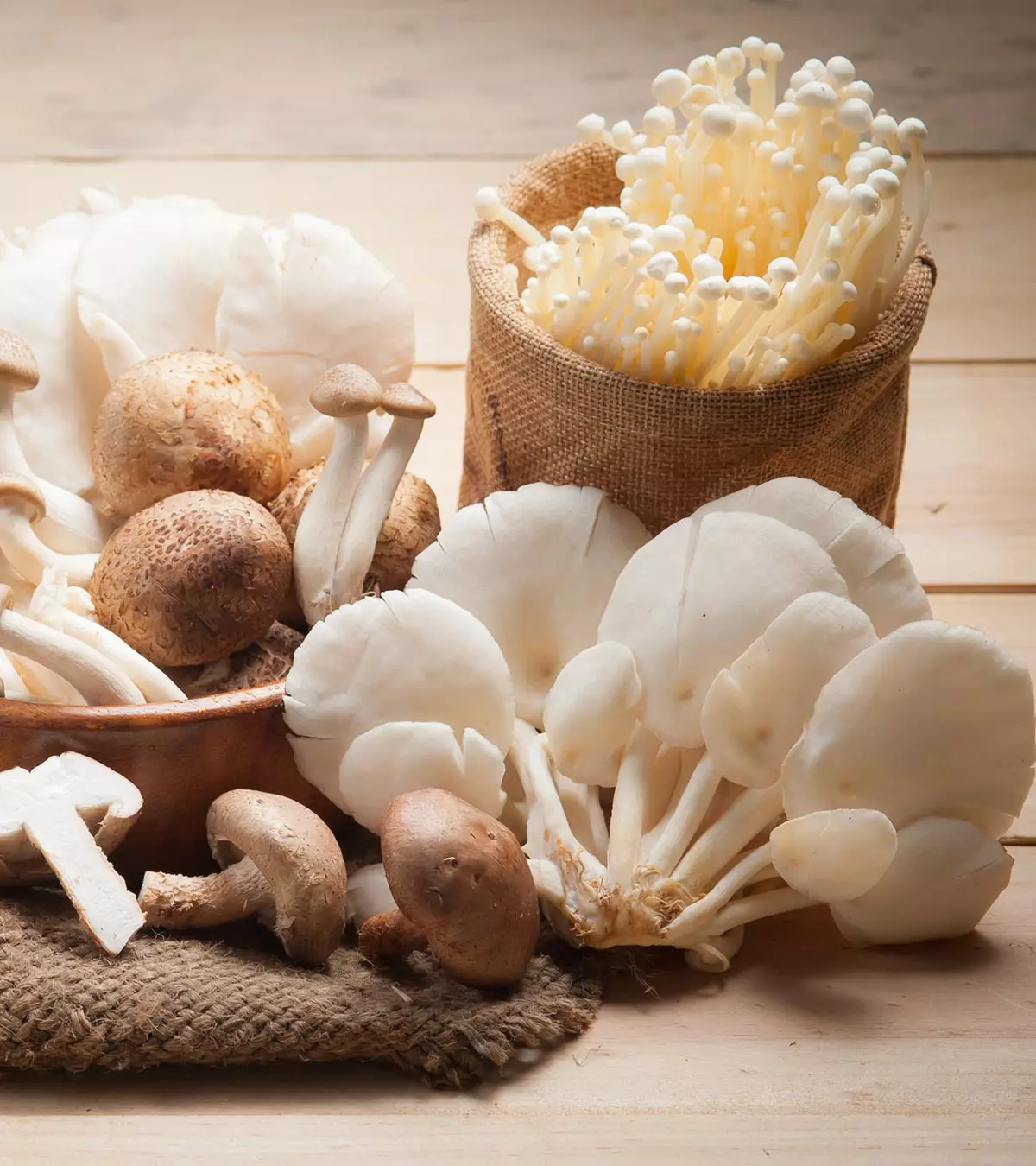
Image: Shutterstock
Pregnant women often ask, “Can I eat mushrooms while pregnant?” as the safety of food choices becomes paramount during this crucial time. Mushrooms can be made into delicious and nutritious dishes and added to several preparations such as soups, salads, and pizzas. However, you may be doubtful about the food’s safety aspects during pregnancy. Freshly picked mushrooms are protein-rich and low in calories. But you should identify the right ones to avoid the risk of toxicity. This post tells you about the possible health benefits of mushrooms during pregnancy, possible risks, the types safe for consumption, and the ones you should avoid.
Key Pointers
- Eating well-cooked mushrooms during pregnancy is recommended, as they are rich in nutrients.
- Mushrooms are a good source of minerals, vitamins B and D, which promote healthy fetal development.
- The high fiber and protein content of mushrooms may help fight fatigue and digestive problems such as constipation in pregnant women.
- Other micronutrients such as iron and antioxidants are crucial for a healthy pregnancy.
- Pregnant women should avoid eating raw or unknown mushroom species, as they may be toxic to both the mother and fetus.
Can Pregnant Women Eat Mushrooms?
Yes, it is safe to consume mushrooms during pregnancy, but avoid raw mushrooms as they arecarcinogeniciPotency to cause cancer and might increase the risks of microbial contamination.
Also, not all mushrooms are edible, and it is important to know the difference.
Consuming cooked or dried mushrooms while pregnant is good as they are highly nutritious and are rich in vitamins, minerals and trace elements.(1).
What Are The Benefits Of Eating Mushrooms During Pregnancy?
Mushrooms offer excellent prenatal nutrition, which supports healthy pregnancy and fetal development. Including them in your regular diet helps you share the benefits with the baby in the womb.
1. Abundant vitamin B
Mushrooms are natural sources of B complex vitamins including thiamine (B1), riboflavin (B2), Niacin (B3) and pantothenic acid (B5) (2), which are beneficial for the mom-to-be and the baby.
- Thiamine and niacin aid in brain development of the baby, relieve fatigue and boost energy.
- Riboflavin aids in keeping the skin healthy, improving eyesight and developing strong bones, muscles, and nerves.
- Pantothenic acid prevents digestion issues (3).
2. Vitamin D promotes healthy bones
Vitamin D deficiency in pregnancy can cause tiredness, back pain, bone weakness, and depression. Adding mushrooms to your diet can give you abundant vitamin D (4). It helps absorb calcium in the body, to form strong bones and teeth in the baby (5).
According to Tara Bassi, a licensed nutritionist, clinical herbalist, educator, and researcher from the Greater Tampa Bay Area, “Most grocery store mushrooms are grown in dark environments with no exposure to natural sunlight or ultraviolet (UV) light. If you choose to eat wild mushrooms or know where they are grown, they are more likely to be exposed to natural sunlight or UV light which will increase their vitamin D content.”
3. Protein and fiber
Protein and fiber are present abundantly in mushrooms.
- Protein is necessary for the overall development of your baby, as it contributes to the muscle mass (6).
- Fiber helps prevent irritable conditions such as constipation and fatigue, improves digestive health, and keeps you active and ready for a smooth delivery (7).
4. Iron promotes hemoglobin levels
Your body requires more hemoglobin as the volume of the blood increases during pregnancy. Mushrooms are an excellent source of iron, which helps produce hemoglobin and red blood cells in both the mother and the fetus (8).
5. Antioxidants boost the immune system
Antioxidants (selenium and ergothioneine) present in mushrooms boost the immune system (9) and keep you disease-free and healthy during pregnancy.
Mushrooms also contain zinc, potassium, and selenium, which assist the baby’s growth and development.
 Did you know?
Did you know?Nutritional Value Of Mushrooms
The nutrient value of raw, white mushrooms (per 100gm serving) is as follows (10):
| NUTRIENT | AMOUNT |
|---|---|
| Calories | 22kcal |
| Carbohydrates | 3.26g |
| Protein | 3.09g |
| Fiber | 1g |
| Fat | 0.34g |
| Vitamins | |
| Vitamin C | 2.1mg |
| Folic acid | 17mcg |
| Pyridoxine | 0.104mg |
| Niacin | 3.607mg |
| Riboflavin | 0.402mg |
| Thiamin | 0.081mg |
| Minerals | |
| Potassium | 318mg |
| Calcium | 3mg |
| Iron | 0.5mg |
| Magnesium | 9mg |
| Zinc | 0.52mg |
| Phosphorus | 86mg |
To benefit from the high nutrient value of mushrooms, you should be able to differentiate between edible and poisonous mushrooms. Read next about the type of mushrooms that you can eat.
What Type Of Mushrooms Can You Eat?
, a registered dietitian nutritionist from Los Angeles, California, says, “The safest mushrooms are shiitake, portobello, oyster, maitake, crimini, white button mushroom, and chestnut.”
Mushrooms that you can eat during pregnancy include:
1. White button mushrooms are a common variety found everywhere (11). You can recognize them by their pale white shoot with a spotted top. The top is flavorful and can be used to make delicious dishes to add to your healthy diet. The shoot contains fiber, which is used in making broths and stews.
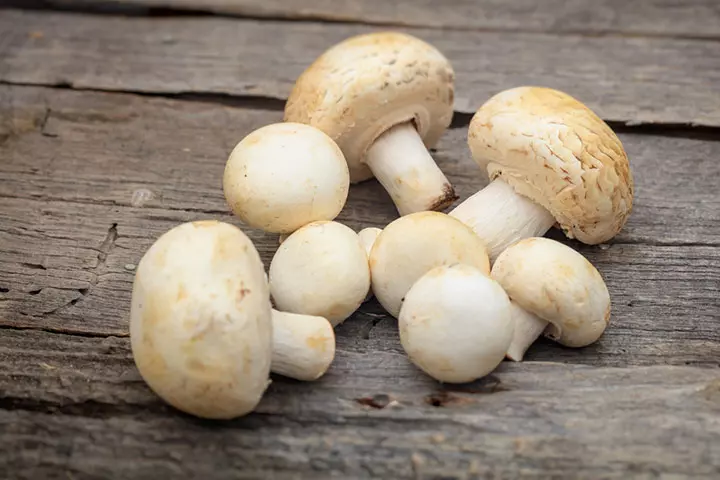
2. Shiitake mushrooms are black and possess a leafy texture, and are popularly used in Chinese cuisine. Shiitake and maitake are medicinal mushrooms, which have high levels of beta-glucan, a polysaccharide sugar, and fiber, but shiitake mushrooms may contain low levels of folate as compared to the other mushroom types. It is an anti-tumor, anti-cancer, antibacterial, anti-fungal and antioxidant substance (12).
- Shiitake (Lentinula edodes)
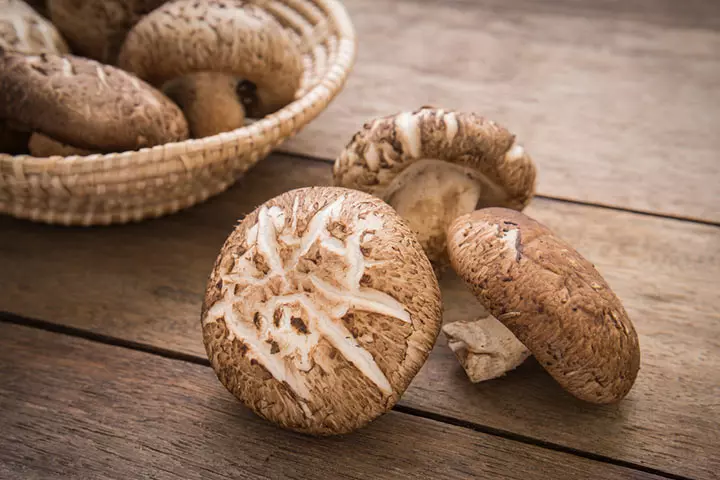
- Maitake (Hen-of-the-wood or Grifola Frondosa)
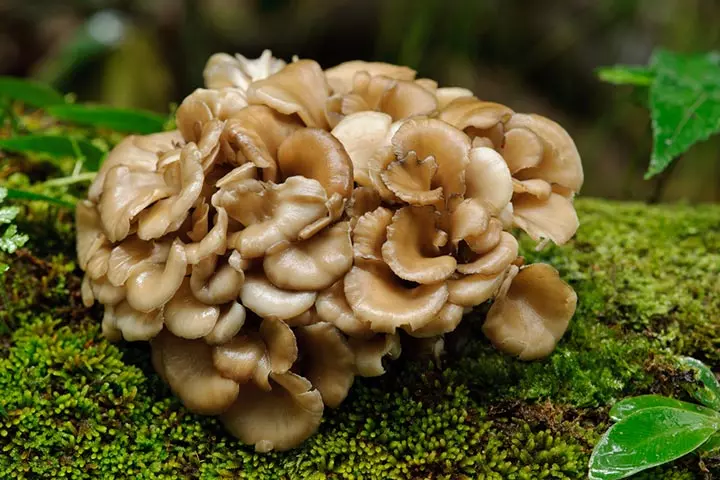
3. Porcini mushrooms (Boletus edulis) are golden in color and are highly flavorful. These are the most expensive mushrooms and are used in Italian cuisine.

4. True morel mushrooms (Morchella) are a wild variety but have an edible strain that comes with a hollow stem. Make sure that you clean and cook them properly as these mushrooms are likely to cause allergic reactions and gastrointestinal upset (13).
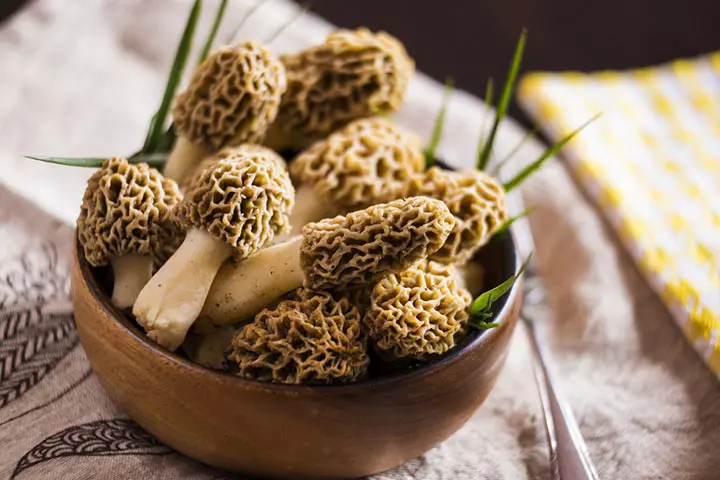
5. Chestnut mushrooms (Agaricus bisporus) look like white button mushrooms but have a brown cap and pink to dark brown gills. They have a strong taste and look like a darker strain of button mushroom.

Other edible mushrooms you can eat during pregnancy include:
- King Oysters/ Eringi (Pleurotus eryngii)
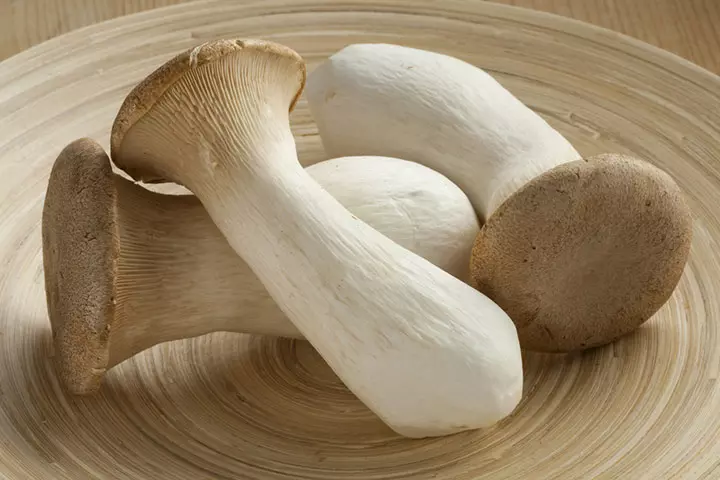
- Enoki (Enokitake)
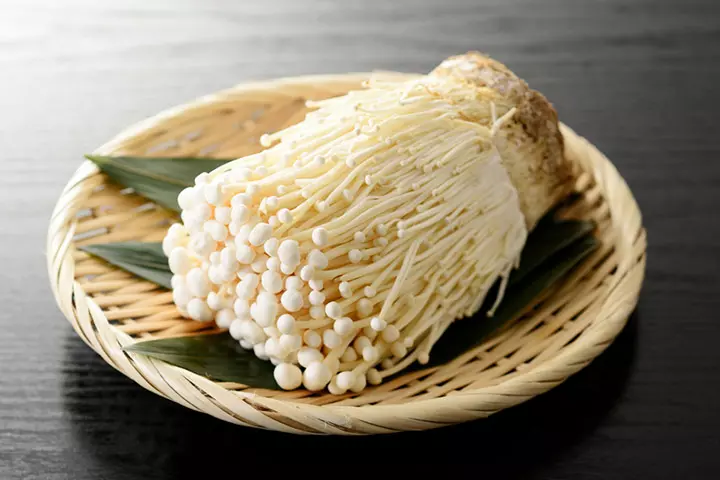
- Buna-Shimeji

Giant puffball (Calvatia gigantea), dryad’s saddle, scarlet elf cups, wood ears, beefsteak fungus, cauliflower fungus, penny buns, field blewits and hedgehog fungus are edible mushrooms but are best avoided when you are pregnant.
Not all mushrooms are meant to be eaten. Some are used for medicinal purposes only, while others are highly poisonous and must be avoided as they can harm the mother’s and unborn baby’s health.
According to the US CDC Morbidity and Mortality Weekly Report 2021, 8.6% (48 of 556) of patients diagnosed with accidental poisonous mushroom ingestion during 2016-2018 had adverse outcomes. These statistics are a reminder that mushroom intake during pregnancy warrants caution.
Types Of Mushrooms To Avoid During Pregnancy
Certain mushrooms can be potentially fatal to both the mother and baby, and should be avoided to prevent serious health risks.
1. Magic mushrooms contain psilocybin, a chemical that alters brain activity and affects your growing fetus. They should not be consumed even when you are breastfeeding (10).
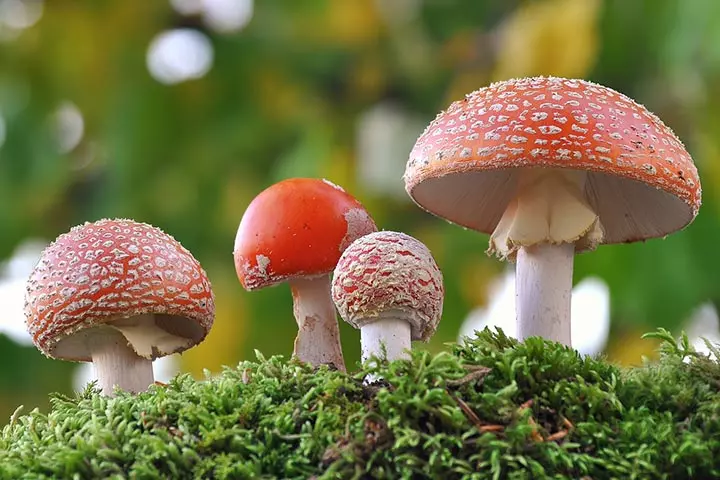
2. Parasol mushrooms are umbrella-shaped, with milky gills, white rings, and some spots. They are brightly colored, and caps are cream colored (10).

3. False morels: They are wrinkled with irregularly shaped caps.

Other poisonous mushrooms you need to avoid are Puffballs Amanitas, Crimini, Chanterelle, Portable, Death Cap, Fly Agaric, Angel Wing, Conocybe Filaris, Deadly Webcap, Autumn Skullcap, Destroying Angels and Podostroma Conru-damae.
 Quick tip
Quick tipWhat To Look For When Buying Mushrooms?
Here are a few considerations to keep in mind when purchasing mushrooms.
- Choose fresh ones that are firm and free of blemishes.
- Avoid any mushrooms that appear slimy or have dark spots.
- Ensure packaged mushrooms are within their expiration date.
- Keep mushrooms in a paper bag in the refrigerator to maintain freshness.
- Beware of wild toxic mushrooms when harvesting your produce yourself.
What Are The Risks Of Taking Toxic Mushrooms?
There are some potential side effects of taking the above mentioned poisonous mushrooms. Remember that these risks will not arise from healthy and edible mushrooms.
- Cause congenital abnormalitiesiStructural and functional abnormalities that develop in the baby while still in the womb : Consumption of poisonous or toxic mushrooms can lead to physical birth defects in babies (14).
- HallucinogeniciPotency of drugs to induce hallucination (altered or distorted perception of reality) : Some poisonous mushrooms possess a hallucinogenic property owing to their psilocybin content, which alters brain activity (2).
- Causes side effects: Toxic mushrooms can cause severe gastrointestinal distress and liver damage. It may also cause the mother to experience symptoms of poisoning, such as nausea and vomiting, requiring immediate medical attention.
Precautions To Follow When Eating Mushrooms When Pregnant
Here are a few tips on how to safely consume mushrooms while pregnant.
- Buy fresh mushrooms, which do not have decaying spots and bruises.
- In the case of processed mushrooms, check for the expiration date.
- Wash and cook properly. Never have raw mushrooms.
- If you want to check if the mushroom is causing any side effects, eat it in small amounts and look for a reaction. Avoid it if you experience any allergic reactions.
Next, we have the answers to some more questions about mushrooms during pregnancy.
Frequently Asked Questions
1. Can I eat mushrooms in early pregnancy?
Yes, you can eat mushrooms in early pregnancy. Since they contain fiber, they help treat indigestion and constipation common in early pregnancy. The antioxidants (such as selenium and ergothioneine) in mushrooms fight free radicals and boost the immune system. Thus, consuming them could help maintain good gastric and gestational health.
2. Does craving mushrooms during pregnancy indicate the gender of the baby?
No. The assumption that craving for mushrooms indicates the baby’s gender is just another old wives’ tale.
3. What are medicinal mushrooms?
“Medicinal mushrooms are chaga, turkey tail, lion’s mane, reish, and cordyceps. These may reduce cholesterol, possibly have anti-ulcer properties, and improve the immune system. However, these should be avoided during pregnancy, as there aren’t enough studies on their safety,” says Garcia.
4. Are psychedelic mushrooms illegal?
Bassi opines, “Psychedelic mushrooms are illegal in the US. However, the state of Oregon recently passed a bill that legalizes the personal use of psilocybin mushrooms and the use of psilocybin mushrooms as a form of therapy for the treatment of PTSDiPost-traumatic stress disorder, a mental health condition triggered by memories of a traumatic or stressful event from the past , severe depression, and substance use disorder.”
5. Can eating mushrooms during the third trimester create complications?
No, eating culinary mushrooms that have been washed and appropriately cooked is safe for pregnant women, including those in the third trimester.
6. Is drinking mushroom coffee safe during pregnancy?
Mushroom coffee is made with a blend of coffee and powdered mushrooms and is generally considered safe. However, its safety for expectant mothers isn’t well known. Thus, speaking to a doctor before trying mushroom coffee when pregnant is advisable.
7. Is it OK to eat mushrooms every day while pregnant?
Properly washed and thoroughly cooked mushrooms can be consumed in moderation as a part of a well-balanced diet daily. However, it is best to consult a doctor for personalized dietary guidance regarding any dietary restrictions during pregnancy.
Having cooked or dried mushrooms during pregnancy is considered safe, but avoid consuming raw mushrooms as they might be carcinogenic. Mushrooms are healthy foods to eat during pregnancy as they contain vitamins, proteins, and fibers, which help develop strong bones in the fetus and maintain the body’s hemoglobin levels. You can safely consume button mushrooms, shitake mushrooms, or any other type of mushrooms mentioned on the list provided above. Further, while buying mushrooms, ensure they do not have decaying spots or bruises.
Infographic: What Type Of Mushrooms Can You Eat During Pregnancy
Now that you know the benefits of mushrooms for pregnant women, we suggest you keep the following infographic handy. Not all types of mushrooms can be consumed during pregnancy. So, referring to this infographic will help you choose the right one for your next grocery run. So read on, and don’t forget to save it. Illustration: Momjunction Design Team
Illustration: Is It Safe To Eat Mushroom During Pregnancy?
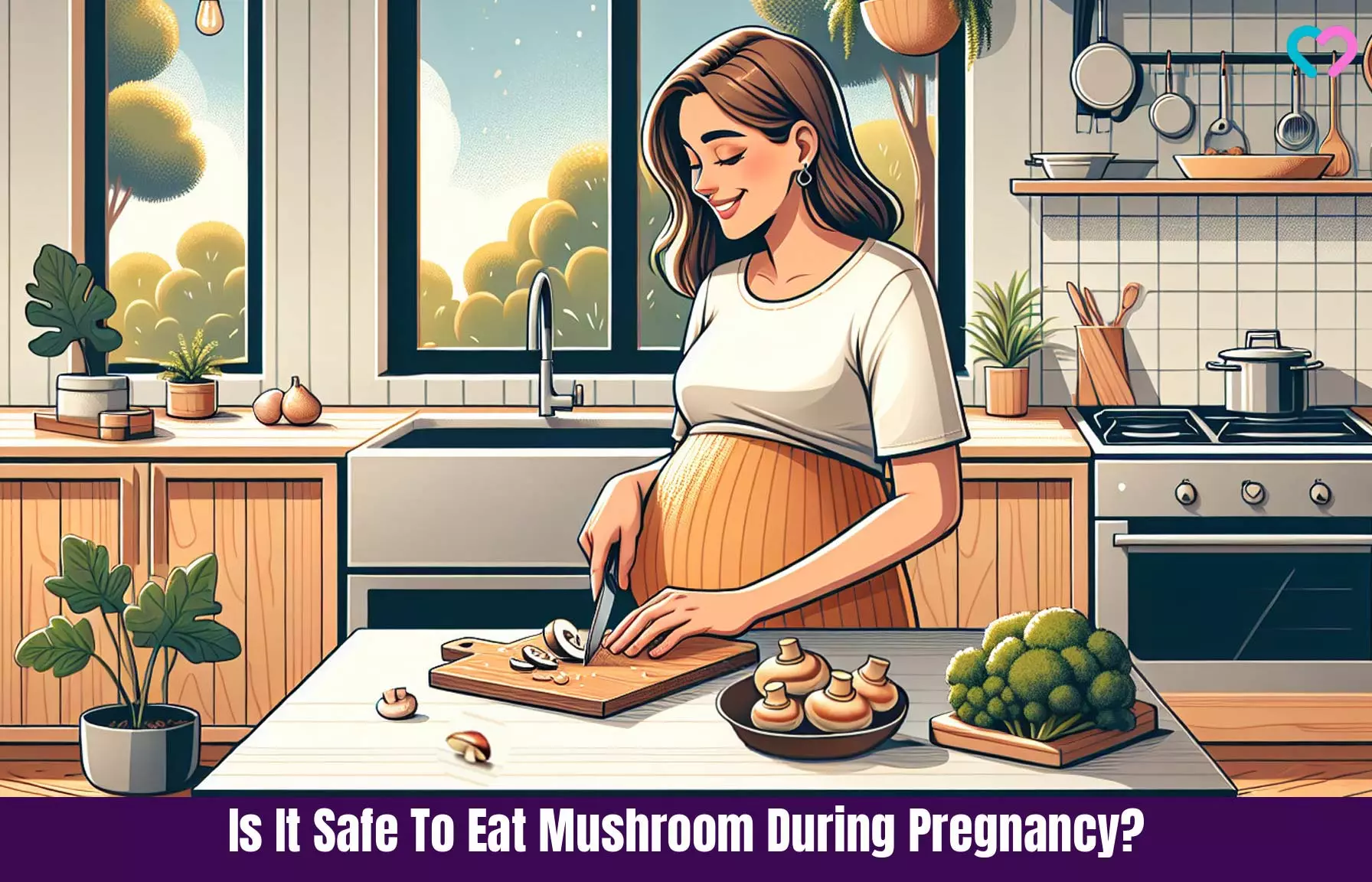
Image: Dall·E/MomJunction Design Team
References
- Guide to a healthy pregnancy.
https://health.maryland.gov/phpa/wic/Documents/wic_nutrition/N-60_Guide_Healthy%20Pregnancy_Eng_0419_proof_pages.pdf - Mushrooms.
https://nutritionsource.hsph.harvard.edu/food-features/mushrooms/ - Fumio Watanabe et al.; (2014); Vitamin B12-Containing Plant Food Sources for Vegetarians.
https://www.ncbi.nlm.nih.gov/pmc/articles/PMC4042564/ - How to Boost Vitamin D with Mighty Mushrooms.
https://achs.edu/blog/how-to-boost-vitamin-d-with-mighty-mushrooms - Strong Bones for You and Your Baby.
https://www.health.ny.gov/publications/1992/index.htm - R. A. Jose and J. Kayode; (2009); Determination of Protein Content of Some Different Types of Species of Mushroom in Owo Local Government Area of Ondo State Nigeria.
https://opensiuc.lib.siu.edu/cgi/viewcontent.cgi?referer=&httpsredir=1&article=1746&context=ebl - Linlin Sun and Zhanjie Niu; (2020); A mushroom diet reduced the risk of pregnancy-induced hypertension and macrosomia: a randomized clinical trial.
https://www.ncbi.nlm.nih.gov/pmc/articles/PMC7286351/ - A healthy diet is the key to getting the iron you need.
https://www.health.harvard.edu/blog/healthy-diet-key-getting-iron-need-201502127710 - Mushroom Nutrition.
https://www.mushroomcouncil.org/all-about-mushrooms/nutrition/ - Mushrooms white raw.
https://fdc.nal.usda.gov/fdc-app.html#/food-details/169251/nutrients - Magical Mushrooms: The Allure of Edible Fungi.
https://nhb.gov.in/report_files/button_mushroom/button%20mushroom.htm - Medicinal Mushrooms.
https://books.google.co.in/books?id=TsEzlmaL2ygC&pg=PA203&lpg=PA203&dq=Shiitake+and+maitake+are+medicinal+mushrooms+beta-glucan+a+polysaccharide+sugar+and+fiber&source=bl&ots=fots7HwDSb&sig=VFCbgtsHrgyBco8ibJd-H7WNIhE&hl=en&sa=X&ved=0ahUKEwiun4Hnz9faAhUSB3wKHd3eClAQ6AEI5AEwFg#v=onepage&q=Shiitake%20and%20maitake%20are%20medicinal%20mushrooms%20beta-glucan%2C%20a%20polysaccharide%20sugar%2C%20and%20fiber&f=false - Collecting Preserving & Using Morel Mushrooms.
https://www.uaf.edu/ces/publications/database/ - L Tímár and A E Czeizel; (1997); Birth weight and congenital anomalies following poisonous mushroom intoxication during pregnancy
https://pubmed.ncbi.nlm.nih.gov/9407596/ - Wild Mushroom Warning.
https://www.poison.org/articles/wild-mushroom-warning - Lucy J. Robertson et al.; (2016); Fresh fruit vegetables and mushrooms as transmission vehicles for Echinococcus multilocularis in Europe: inferences and concerns from sample analysis data from Poland.
https://www.ncbi.nlm.nih.gov/pmc/articles/PMC4863902/ - Toxoplasmosis: An Important Message for Women.
https://www.cdc.gov/parasites/toxoplasmosis/resources/toxowomen_2.2003.pdf
Community Experiences
Join the conversation and become a part of our nurturing community! Share your stories, experiences, and insights to connect with fellow parents.
Read full bio of Jyoti Benjamin
- Tara Bassi is a licensed nutritionist and clinical herbalist. She did her MS in Clinical Nutrition and Herbal Medicine at the Maryland University of Integrative Health. Tara specializes in Nutrition and Herbal counseling and is a board-certified nutritionist with five years of experience.
 Tara Bassi is a licensed nutritionist and clinical herbalist. She did her MS in Clinical Nutrition and Herbal Medicine at the Maryland University of Integrative Health. Tara specializes in Nutrition and Herbal counseling and is a board-certified nutritionist with five years of experience.
Tara Bassi is a licensed nutritionist and clinical herbalist. She did her MS in Clinical Nutrition and Herbal Medicine at the Maryland University of Integrative Health. Tara specializes in Nutrition and Herbal counseling and is a board-certified nutritionist with five years of experience. - Blanca Garcia has been a registered dietitian nutritionist since 2013 with a private practice in Pasadena, California. She currently consults through the preschool Head Start Programs in Los Angeles. Blanca graduated in 2011 from California State University of Los Angeles and interned at the University of Puerto Rico Medical Science campus in 2012.
 Blanca Garcia has been a registered dietitian nutritionist since 2013 with a private practice in Pasadena, California. She currently consults through the preschool Head Start Programs in Los Angeles. Blanca graduated in 2011 from California State University of Los Angeles and interned at the University of Puerto Rico Medical Science campus in 2012.
Blanca Garcia has been a registered dietitian nutritionist since 2013 with a private practice in Pasadena, California. She currently consults through the preschool Head Start Programs in Los Angeles. Blanca graduated in 2011 from California State University of Los Angeles and interned at the University of Puerto Rico Medical Science campus in 2012.
Read full bio of Swati Patwal
Read full bio of Rebecca Malachi
Read full bio of Aneesha Amonz








